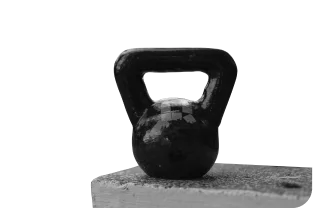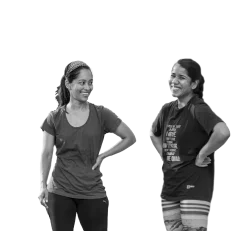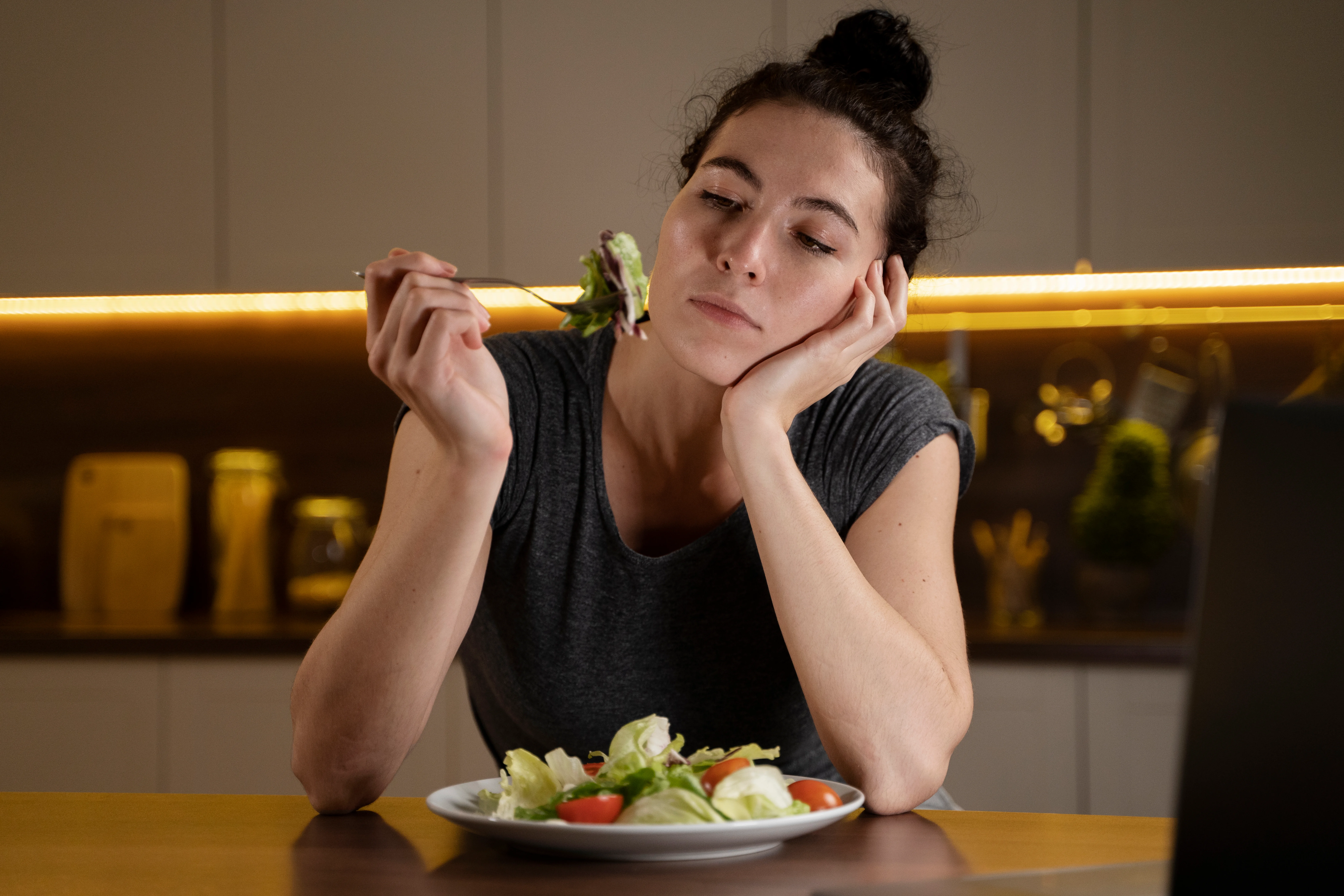Let’s Talk About Protein: Your Comprehensive & Instructive Guide
Jun 3, 2023 ∙ 6 mins read

Protein is one of the three main macronutrients our body needs for optimum functioning. It is an essential nutrient that plays a key role in our overall health. The health benefits of a protein-rich diet are many - the human body needs it for muscle growth, it keeps us full and it requires more energy to burn than other macros.
Lack of sufficient protein results in a lot of trauma for the body from stunted growth in children to fatty liver disease, poor bone health, and worse in adults.
What are the advantages of a protein-rich diet?
- Induces satiety, reduces hunger
- Increases muscle mass
- Improves bone health
- Curbs snacking and bingeing
- Increases fat burning by boosting metabolism
- Plant protein “decreases the established lipid targets low-density lipoprotein cholesterol, non-high-density lipoprotein cholesterol”
- Aids weight loss
- Helps in post-exercise recovery
- Great hair and nails!
But first, let’s talk numbers:

What is the recommended dietary allowance? What should your daily protein intake be? Here are the protein recommendations, based on your activity level.
- If you are sedentary and health is your only goal, you'll need about 1-1.2 grams of protein per kilogram of body weight.
- If you train 2-3 times a week at a moderate intensity or do mostly endurance-type training, you'll need about 1.2-1.6 grams of protein per kilo of body weight.
- If you strength train hard 2-4 times a week, you'll need about 1.6-2 grams of protein per kilo of body weight.
- If you are a serious athlete training 5+ times a week with a good combination of strength, skill, and endurance training, you'll need 2-3 grams of protein per kilo of body weight.
Bear in mind your age and also will alter your requirements. Plus, if fat loss is your current goal, your diet might require a higher protein intake. Older adults would need less.
Now that we have the numbers sorted, the next step is to figure out how to tweak your diet. What should you add to your plate to get your daily dose of protein? What foods have a decent protein store?
How much dietary protein is in the different foods we consume
Some examples of protein-rich foods are:
- 1 whole egg - 6 grams
- 1 egg white - 4 grams
- 1 cup whole milk or curd - 8 grams
- 1 cup lentils - 10 to 14 grams (depending on the type)
- 1/4 cup of whey isolate - 20-25 grams (depending on the brand)
- 100 grams of lean meat or seafood - 25-30 grams (depending on the type)
- 100 grams of red meat (cooked) - 32 grams
- 100 grams of cheese - 15-25 grams (depending on the type)
- 1 cup tofu (252 grams) - 20 grams
- A cup of mixed vegetables - 5-15 grams (depending on the type)
Now that you know what a good source of protein looks like, let's see what this means to your plate. Say you are a petite woman, 5’3”, weighing 65 kilos that train 3-4 times a week. You are aiming for 110 grams of protein per day.
Your breakfast could be a simple whey protein shake with chia seeds, a piece of fruit, and ¼ cup oats netting you around 32 grams of protein easily. If you prefer hot food, eggs are a great option - boiled, scrambled, sunny side up, with some grilled vegetables and a slice of toast or even a dosa!
A lunch with stir-fried vegetables, a serving of grilled paneer (Indian cottage cheese), dal, and some rice will get you anything from 30-40 grams of protein.
For an evening snack, (my personal nemesis!) half a cup of hung curd or greek yogurt sprinkled with toasted pumpkin and sunflower seeds will net you as much as 40 grams of protein! (It is also high in fat so be prudent with serving sizes.)
Now you know how much protein you need from your dinner, you can plan your meal accordingly.
It could be as simple as that!
In order to ensure I have got my facts right, I had a chat with Shivani Ranganathan (SR), health coach at TheDaily9, on all things protein. Here are the excerpts from our conversation.
What are the top sources of protein for vegetarians?
SR: For those on a vegetarian diet, eggs, dairy products like milk, yogurt, cheese, and paneer, all have protein in varying quantities. Among these, hung yogurt, paneer, and cheese have a high protein content.
What about those on a vegan diet?
SR: Plant-based protein foods that vegans can go for include soy products like soybeans, edamame, tofu, and tempeh. Tempeh is gaining in popularity in India, thanks to brands like Hello Tempay making it easily available.
Both vegetarians and vegans have a number of lentils and legumes to choose from - moong, chickpeas, rajma, etc. These have a good amount of protein - not as high as meat, dairy, or soy, of course, but definitely a good addition to our diet.
Some vegetables, such as mushrooms, Brussels sprouts, broccoli, etc also have a good amount of protein in them. Of course, they also have plenty of essential vitamins, minerals, and fiber, so adding them to our diet is an excellent way to round off our daily nutritional requirements.
One way for vegans and vegetarians to get adequate amounts of protein is to supplement with a vegan protein powder or a whey protein powder. Obviously, whole foods trump everything but most people don’t get enough protein in their daily diet and so, supplementation with these protein powders can be a great option.
How safe is an egg? How much is too much?
SR: Eggs are a great addition to our diet. Not only do they have plenty of protein, they also have other vitamins and minerals that we need. The first thing that a lot of people tend to do, is stick to egg whites and avoid the egg yolk, as it contains a lot of cholesterol or fat.
It is important to know that the cholesterol we consume from foods, especially healthy food sources like egg, does not convert to unhealthy cholesterol in our bodies. Our body processes this safely so it is not something we need to be worried about, as unhealthy cholesterol comes from processed foods, trans fats, etc.
So eat that yolk!
It is totally safe to consume 3-4 eggs a day. I have been having eggs daily myself and it definitely increases satiety, keeping you full for longer. Of course, it is a very individual preference - some might be allergic, some cannot process it, so egg consumption needs to be taken on a case-by-case basis.
How can we incorporate more protein into our diet?

SR: Protein for breakfast is a great way to start our day. Eggs, paneer/tofu bhurji on toast are simple but effective ways to get some protein. If you prefer South Indian breakfast, just toss in some paneer or tofu cubes in your dish.
I know it is unusual, but I add a couple of handfuls of paneer cubes to my family’s semiya upma breakfast. It tastes great and my kids love them!
If you are making dishes like poha, why not add in some channa to it? I always keep some cooked channa handy in my freezer, ready to toss into whatever I am making.
Similarly, at lunchtime, I make it a point to have some protein on the plate. A couple of boiled eggs with my regular meal; a bowl of channa or rajma, if you don’t eat eggs; a piece of white fish, lean cut of meat, or grilled chicken, if you eat meat.
Nowadays, we also have simple options that are available in the markets. Some supermarkets sell roasted soy bean or frozen edamame, which make great snacks.
You can toss in chunks of cheese into your salad to ramp up the protein content. There are many good quality, locally made cheeses available in the shops these days - feta, cheddar, parmesan, etc are rich in protein. You can even toss in toasted cubes of tofu or even tempeh, the fermented version of tofu, which is good for your gut.
So remember the simple rule of thumb: have some protein with every meal. This makes the meal more balanced and fills you up so you don’t feel hungry soon after.
Protein is vital to our body's needs. It is important for a healthy diet, in older people, and in young children. Protein plays many an important role in our body function, so go on, get some.
If you need a bit more help with your nutrition, we can help you. Call us and we will hand-hold you all the way!






